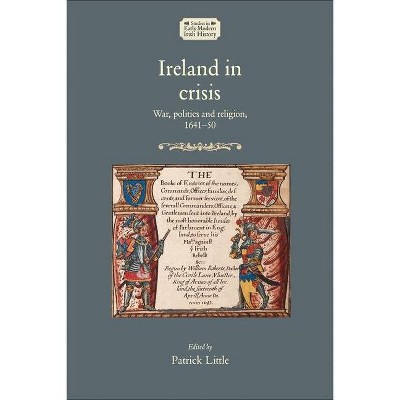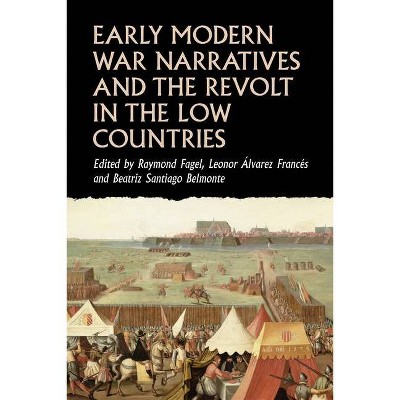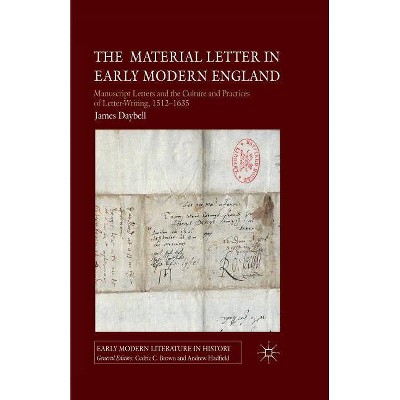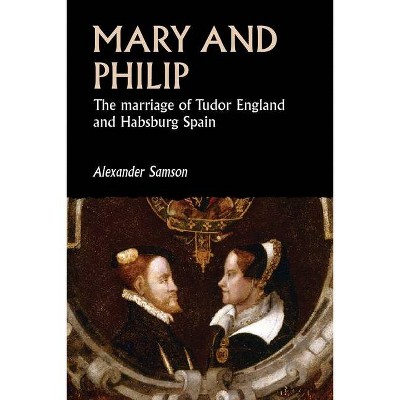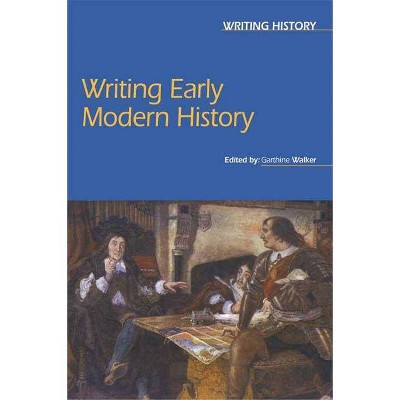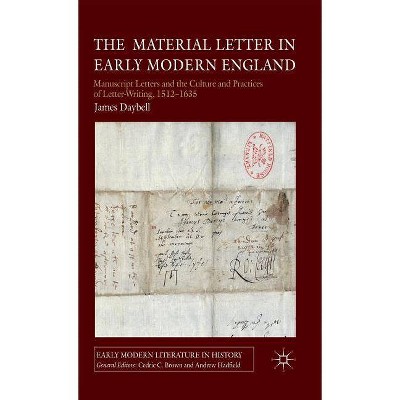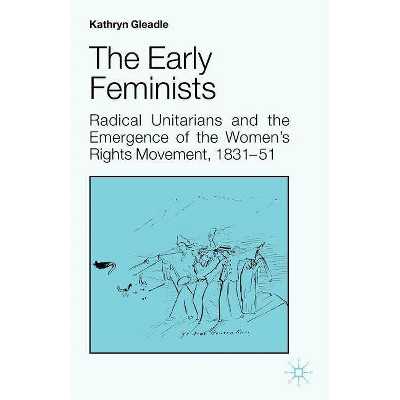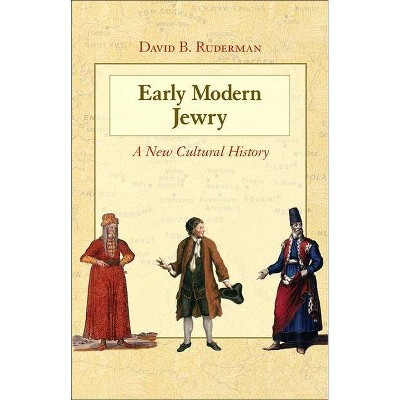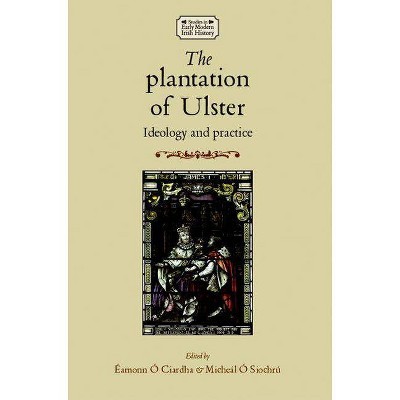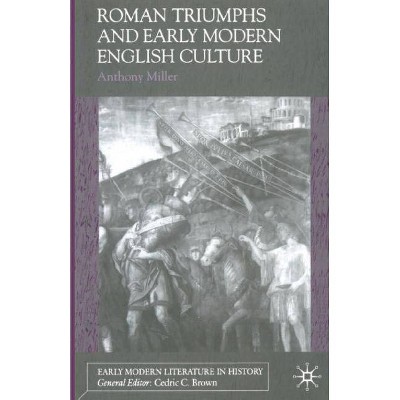The Scots in Early Stuart Ireland - (Studies in Early Modern Irish History) by Micheál Ó Siochrú & David Edwards (Paperback)
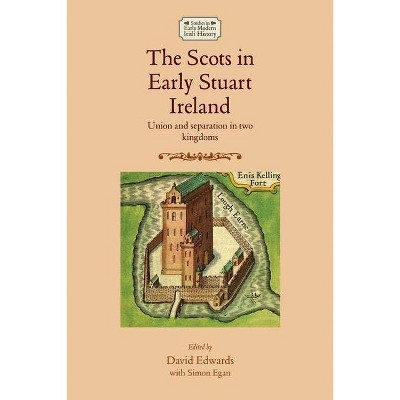
Similar Products
Products of same category from the store
AllProduct info
<p/><br></br><p><b> About the Book </b></p></br></br>This book charts key aspects of the Anglo-Scottish experience down to the Restoration and greatly improves understanding of that complex and troubled relationship.<p/><br></br><p><b> Book Synopsis </b></p></br></br><p>Despite growing academic interest in English, Scottish, Irish and Welsh inter-connections sparked by the 'New British History' debate, sixteenth- and seventeenth-century 'British' historiography to date has focused on Anglo-Scottish and Anglo-Irish relations. This book explores Irish-Scottish connections during the period 1603-60 and brings important new perspectives to study of the Early Stuart state. <br /> <br /> It was chiefly in Ireland that the English and Scots intermingled after 1603, with a variety of consequences, sometimes positive, often negative. An account is provided of Scottish involvement in early-to-mid seventeenth-century Ireland, which was both more and less pervasive than has been generally understood. Increased Irish-Scottish contact was one of the main consequences of the Ulster plantation but this has previously been under-emphasised in accounts of the period. Similarly the Irish religious and political role in western Scotland and the Isles has been mostly underappreciated but both are deliberated. The importance of the Gaelic world in Irish-Scottish connections also receives attention - the Gaelic world played a central role in the transmission of Catholic and Protestant radicalism in Ireland and Scotland, which served as a catalyst to underlying political and ethnic tensions within the British Isles, with revolutionary consequences. This book helps to identify some of the limits of England's Anglicising influence in the northern and western 'British Isles' and the often slight basis on which the Stuart pursuit of a new 'British' state and a new 'British' consciousness operated.<br /> <br /> With essays written by leading specialist scholars in the period, including Jane Ohlmeyer, this book will be of interest to Post-graduates and final-year undergraduates interested in British, Irish and early modern history.</p><p/><br></br><p><b> From the Back Cover </b></p></br></br>Despite growing academic interest in English, Scottish, Irish and Welsh inter-connections sparked by the 'New British History' debate, sixteenth- and seventeenth-century 'British' historiography to date has focused on Anglo-Scottish and Anglo-Irish relations. This book explores Irish-Scottish connections during the period 1603-60 and brings important new perspectives to study of the Early Stuart state. It was chiefly in Ireland that the English and Scots intermingled after 1603, with a variety of consequences, sometimes positive, often negative. An account is provided of Scottish involvement in early-to-mid seventeenth-century Ireland, which was both more and less pervasive than has been generally understood. Increased Irish-Scottish contact was one of the main consequences of the Ulster plantation but this has previously been under-emphasised in accounts of the period. Similarly the Irish religious and political role in western Scotland and the Isles has been mostly underappreciated but both are deliberated. The importance of the Gaelic world in Irish-Scottish connections also receives attention - the Gaelic world played a central role in the transmission of Catholic and Protestant radicalism in Ireland and Scotland, which served as a catalyst to underlying political and ethnic tensions within the British Isles, with revolutionary consequences. This book helps to identify some of the limits of England's Anglicising influence in the northern and western 'British Isles' and the often slight basis on which the Stuart pursuit of a new 'British' state and a new 'British' consciousness operated. With essays written by leading specialist scholars in the period, including Jane Ohlmeyer, this book will be of interest to Post-graduates and final-year undergraduates interested in British, Irish and early modern history.<p/><br></br><p><b> Review Quotes </b></p></br></br><br><br>Edwards has drawn together an unusually cohesive set of articles grouped around an orderly sequence of themes that include land, office, religious identity, and politics. - Pádraig Lenihan, National University of Ireland, Galway, Renaissance Quarterly, 70.3 (Fall 2017) <br><p></p><br><br><p/><br></br><p><b> About the Author </b></p></br></br><br><strong>David Edwards</strong> is Senior Lecturer in History at University College Cork <p/><strong>Simon Egan</strong> is Tutor in Medieval History at University College Cork<br>
Price History
Cheapest price in the interval: 29.95 on November 8, 2021
Most expensive price in the interval: 29.95 on December 20, 2021
Price Archive shows prices from various stores, lets you see history and find the cheapest. There is no actual sale on the website. For all support, inquiry and suggestion messagescommunication@pricearchive.us
